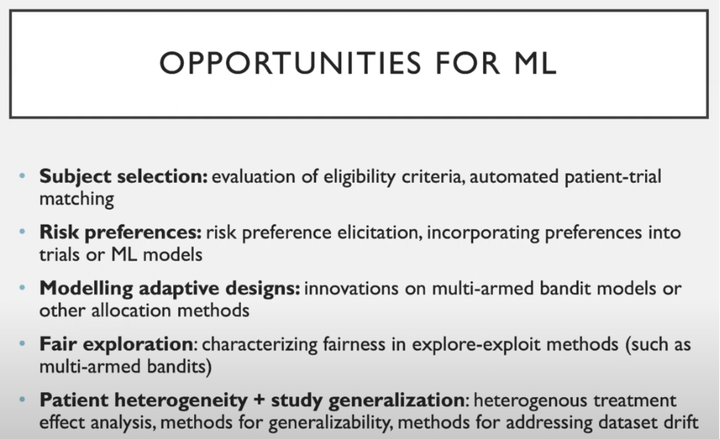Multi-disciplinary fairness considerations in machine learning for clinical trials

Abstract
While interest in the application of machine learning to improve healthcare has grown tremendously in recent years, a number of barriers prevent deployment in medical practice. A notable concern is the potential to exacerbate entrenched biases and existing health disparities in society. The area of fairness in machine learning seeks to address these issues of equity; however, appropriate approaches are context-dependent, necessitating domain-specific consideration. We focus on clinical trials, i.e., research studies conducted on humans to evaluate medical treatments. Clinical trials are a relatively under-explored application in machine learning for healthcare, in part due to complex ethical, legal, and regulatory requirements and high costs. Our aim is to provide a multi-disciplinary assessment of how fairness for machine learning fits into the context of clinical trials research and practice. We start by reviewing the current ethical considerations and guidelines for clinical trials and examine their relationship with common definitions of fairness in machine learning. We examine potential sources of unfairness in clinical trials, providing concrete examples, and discuss the role machine learning might play in either mitigating potential biases or exacerbating them when applied without care. Particular focus is given to adaptive clinical trials, which may employ machine learning. Finally, we highlight concepts that require further investigation and development, and emphasize new approaches to fairness that may be relevant to the design of clinical trials.